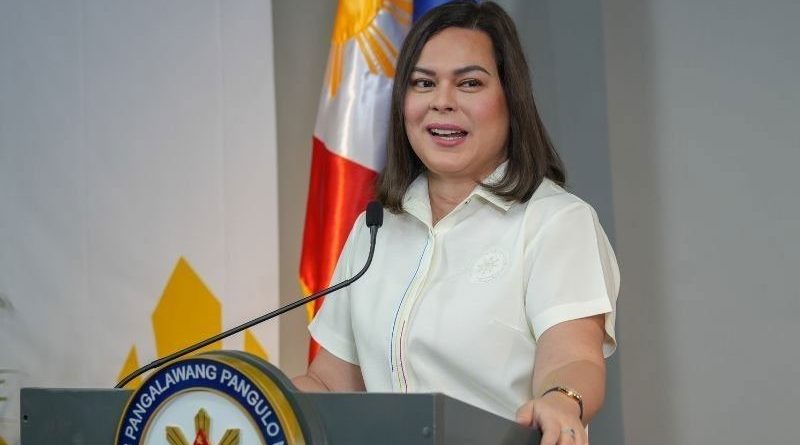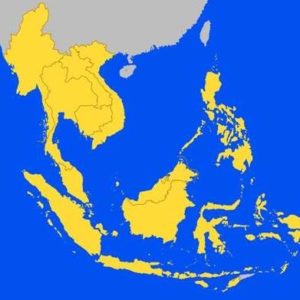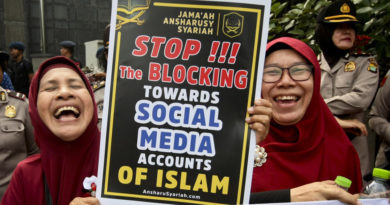ASEANEWS HEADLINE | MANILA: ‘VP Sara impeachment trial starts after SONA’
WATCH VIDEO: https://www.youtube.com/watch?v=zIyg6ho5j4U
VP Sara’s impeachment trial likely after SONA in July: Senate president | ABS-CBN News
.

MANILA, Philippines — The impeachment trial of Vice President Sara Duterte would commence only after President Marcos’ fourth State of the Nation Address (SONA) on July 21, Senate President Francis Escudero said yesterday.
Escudero told Senate reporters that the trial would start “when the new Congress already enters into its function.”
“SONA is on July 21, so the trial will commence after that day,” he said.
Escudero reiterated that Duterte would receive fair treatment as she faces senators, who will be sitting as judges in the impeachment court.
He repeated that Duterte would not be forced to physically attend the impeachment trial and that she would be accorded treatment appropriate to her position.
“She’s free to say what she wants, but if she needs to attend, we will make her attend. If she doesn’t need to attend, we won’t force her, because that’s her right, to waive her right to appear unless it is necessary or needed,” Escudero said.
If Duterte would like to give her testimony, Escudero, who is a lawyer, said any direct testimony must be subject to cross-examination before it is considered admissible.
“Will she attend as a spectator? Will she attend as a lawyer… lawyering for herself? It depends on what capacity she will attend, and she will be accorded the treatment depending on (that) capacity,” he explained.

Several lawmakers, along with various sectors, are urging the Senate to
immediately commence the impeachment trial, which could be made possible if President Marcos calls a special session to allow the Senate to convene as an impeachment court.
However, Escudero explained that even when the Senate resumes session on June 2, the senators could not hold a trial right away as they still have a lot to prepare and they would not be able to discuss anything until the 19th Congress closes on June 30.
He noted that first, they still need to adopt permanent impeachment rules – which are currently being drafted and will be debated when session resumes.
He said they still have to give Duterte time to answer the Articles of Impeachment, which can be set for 10 days, and can be extended if requested.
With her answer, Escudero said the prosecution or the prosecutors would ask for a response from the chamber, and with their answers, they could be questioned again for a rejoinder.
“From there, the senators can decide to set a pre-trial as is done in court; so with the aforementioned, it will take the June 30 closing of Congress. So the senators – impeachment court judges – wearing robes will be seen in the Senate session hall by July,” he pointed out.
Escudero said if the pre-trial is held and the impeachment trial is done four times a week, the trial would be completed in two to three months.
|
|
215 signatures verified
Escudero also disclosed that all the 215 signatures of the members of the House of Representatives have been verified to be “wet signatures,” meaning they actually signed the impeachment complaints that were transmitted to the Senate as opposed to e-signatures.
“Visually, (the Senate) verified that all 215 signatures are indeed wet signatures. At least four people viewed it at least two times per person. But in addition to that, we procured applications. There is an AI app that can see if the paper has a wet signature or if it is an e-sig just to further validate,” the Senate President said.
|
|
VP’s bank records, SALN to face scrutiny

Meanwhile, impeachment prosecutors will go after Vice President Sara Duterte’s bank records and statement of assets, liabilities and net worth (SALN) next, according to a member of the 11-man prosecution panel.
According to Rep. Joel Chua, chairman of the House committee on good government and public accountability, the plan is to have these documents summoned by the Senate impeachment court.
Chua said they will likely target Duterte’s SALN dating back to fiscal year 2023. Deadline for submission of all government officials’ and employees’ SALNs is on April 30, 2025, which means the fiscal year that will be covered will be that of 2024.
“The impeachment process allows us to complete the evidence to support our case, and that includes subpoenaing financial records if necessary through the Senate impeachment court,” Chua explained.
“The Bank Secrecy Law provides an exception for impeachment cases, and we intend to use all legal means to secure relevant documents, in addition to the evidence already presented, that will aid in the trial,” he added.
With Congress (Senate and House) currently on recess for the election campaign, Chua emphasized that the House prosecution team is not waiting idly by but is actively preparing for the eventual trial come June or July.
Although Chua would prefer the impeachment trial to be done immediately based on the specific provision stated in the 1987 Constitution using the word “forthwith,” he has no complaints if it commences later.
|
|
.
“That is why we finished and filed it, and the ball is now in the hands of the Senate. We know fully well that only the Senate can hear such cases enumerated in the Articles of Impeachment that we filed,” he said.
Chua said it would still be legally plausible for impeachment proceedings to be carried over into the 20th Congress, which shall convene on July 1, but only if conclusion cannot be reached before June 30 this year.
“It happened in the US I think about four times, where the impeachment was filed in a different Congress, but it was the succeeding Congress that underwent trial. So, this is nothing new, it happened in America,” he said, firmly believing that the “Senate is a continuing body.”
Rep. Jude Acidre of party-list Tingog supported Chua’s statement, citing the case of former US president Bill Clinton.
“It happened to Bill Clinton. He was impeached in the 105th Congress, but the trial started during the 106th Congress of the Senate,” Acidre said.
The rules on impeachment in the Philippines are largely patterned after the US impeachment system, but with some key differences.
The impeachment of Clinton serves as a direct precedent, having been impeached by the 105th US Congress on Dec. 19, 1998, with his Senate trial commencing on Jan. 7, 1999, during the 106th Congress. The trial concluded with his acquittal on Feb. 12, 1999.
This example reinforces the argument that an impeachment process does not expire simply because a new Congress is convened. According to the lawmakers, the principle applies to the Philippines, where the House of Representatives’ impeachment power remains intact despite a congressional transition. — Delon Porcalla
|
|







 Memento Maxima Digital Marketing
Memento Maxima Digital Marketing






